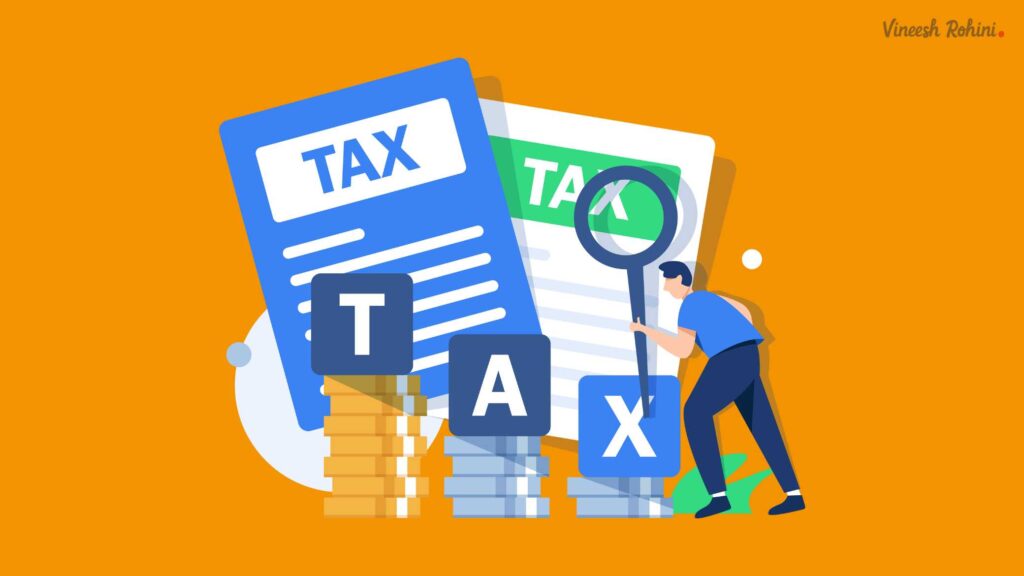Tax Benefits on Personal Loans : In the realm of personal finance, personal loans have become a popular financial instrument due to their flexibility, quick disbursal, and ease of access. From medical emergencies to debt consolidation, wedding expenses to home renovations, personal loans offer a one-stop solution. However, when it comes to tax benefits on personal loans in India, there’s often confusion and misinformation.
Table of Contents
This detailed 3000-word essay aims to provide an in-depth understanding of how personal loans can (or cannot) provide tax benefits, the conditions under which these benefits are applicable, and how to claim them in 2025.
Understanding Personal Loans: An Overview

A personal loan is an unsecured loan offered by banks and Non-Banking Financial Companies (NBFCs) without the need for collateral. Since it’s not tied to any asset or specific purpose, the interest rates are usually higher compared to secured loans. While it provides financial freedom, most individuals overlook one critical aspect — the tax implications.
Also Read : Personal Loan Trends to Watch in 2025
In India, tax deductions play a significant role in financial planning. Individuals often invest in tax-saving instruments like Public Provident Fund (PPF), National Savings Certificate (NSC), and Equity Linked Saving Schemes (ELSS). However, the possibility of tax deductions on personal loan interest or principal repayment is less commonly discussed. Let’s explore this lesser-known aspect of personal loans in detail.
Are Personal Loans Eligible for Tax Deductions in India?
The short answer is Yes, but with conditions.
Unlike home loans or education loans which come with clearly defined Section 80C or Section 80E tax benefits, personal loans do not have a dedicated section under the Income Tax Act, 1961. However, tax benefits may still be available depending on the purpose of the loan.
So, while the loan itself is not tax-deductible, the use of the funds determines the eligibility for tax deductions. The Indian Income Tax Department is more concerned about the purpose than the type of loan.
Tax Benefit Scenarios Based on Loan Usage
Let’s break down various scenarios where personal loans can offer tax benefits in India under the Income Tax Act in 2025:
1. Personal Loan Used for Home Renovation or Home Purchase
- Section 24(b) of the Income Tax Act allows tax deduction on interest paid on loans taken for purchase, construction, repair, or renovation of a residential property.
- If a personal loan is used for any of the above purposes, the interest paid on the loan is eligible for tax deduction up to ₹2,00,000 under Section 24(b), provided the individual is able to prove the utilization of the loan.
Conditions to Claim:
- You must own the property for which the loan is being used.
- Proof of expense (invoices, bank statements, builder receipts) must be retained.
- Tax benefits are applicable only for the interest component, not the principal repayment.
Also Read : ₹1,00,000 to ₹25,00,000 Personal Loan
2. Personal Loan for Business Use
If the funds are used to invest in a business — such as buying inventory, acquiring machinery, or expanding operations — the interest paid on the personal loan can be claimed as a business expense.
- Allowed under Section 37(1) of the Income Tax Act.
- The entire interest paid during the year is deductible from the business income, thereby reducing the tax liability.
Conditions to Claim:
- You must have a registered business or professional income.
- Maintain proper accounting of how the loan amount was utilized.
- Deduction is available only for the interest part, not principal repayment.
3. Personal Loan Used to Purchase Assets (Investments)
When a personal loan is used to purchase assets such as:
- Shares or Mutual Funds
- Gold
- Property (non-residential)
- Other capital assets
…then the interest paid on the loan can be added to the cost of acquisition of the asset. This increases the purchase cost, thereby reducing Capital Gains Tax liability at the time of asset sale.
Example:
You take a personal loan of ₹10 lakhs to buy shares. You pay ₹1 lakh interest over a year. If you sell the shares later, this ₹1 lakh interest can be added to your purchase cost and hence reduce the capital gain.
Important Note:
This is not a direct deduction, but a method of capital gain tax optimization.
4. No Tax Benefits for Personal Expenses

If the personal loan is used for non-income-generating purposes, such as:
- Marriage
- Travel/Vacation
- Buying a car
- Personal shopping
- Paying off credit card debt
- Medical emergencies (unless reimbursed)
Then no tax deduction is available on either interest or principal repayment.
What Components Are Eligible for Tax Deduction?
It’s crucial to understand that only the interest component of a personal loan is tax-deductible in specific scenarios. The principal repayment is generally not eligible for any deductions, unlike home loans (which fall under Section 80C).
How to Claim Tax Benefits on Personal Loan in India 2025
To claim tax benefits on a personal loan:
- Maintain Documentation:
- Loan agreement
- Bank statements showing disbursal and repayment
- Proof of how the funds were utilized (invoices, receipts, business entries)
- Income source (business registration, professional receipts)
- File Income Tax Return Correctly:
- Choose the correct ITR form (ITR-3, ITR-4 for business income; ITR-2 for capital gains).
- Claim the deduction under appropriate heads like Income from House Property, Profits and Gains of Business or Profession, or Capital Gains.
- Get Professional Help:
- If unsure, consult a CA or tax expert to avoid errors and notices from the IT Department.
Latest Updates & Tax Regime Changes in 2025
With the Indian government’s increasing focus on digital loans and paperless disbursals, more individuals are applying for personal loans through fintech apps. While the new tax regime (optional) introduced in previous years offers lower tax rates without deductions, most of these benefits apply under the old tax regime.
So, if you’re aiming to claim tax benefits on personal loans:
- Stick to the old regime in 2025 if you plan to leverage deductions under Section 24(b) or Section 37(1).
- Review both regimes each year to decide which one is more beneficial overall.
Common Myths About Tax on Personal Loans
1. Personal Loan Is Always Tax-Free
Not true. If the usage is not for a tax-deductible purpose, no benefit is available.
2. Personal Loan Principal Can Be Claimed Under 80C
Wrong. Only home loan principal can be claimed under Section 80C.
3. Businessmen Can Write Off All Personal Loans
Only the interest component used for business is deductible — and only if proper proof is maintained.
Real-Life Example: Tax Benefit from Home Renovation Loan
Suppose Mr. Kumar took a ₹5 lakh personal loan for renovating his self-occupied house and paid ₹50,000 as interest in FY 2024–25. He submits receipts and documentation. Under Section 24(b), he can claim ₹50,000 as deduction and reduce his taxable income accordingly.
This helps not only in tax saving but also improves his post-tax returns on investment in his property.
Smart Tips to Maximize Tax Efficiency with Personal Loans
- Use personal loans strategically for income-generating activities — such as business or asset purchase.
- Avoid using loans for depreciating assets (like cars or gadgets) as it offers no financial or tax benefit.
- Keep all proofs and documentation organized in case of tax scrutiny.
- Consult a tax expert annually to revise tax planning and optimize deductions.
- Reinvest saved taxes to build long-term wealth via mutual funds or fixed deposits.
Tax Benefits on Personal Loans – Conclusion

While personal loans may not seem like a traditional tax-saving instrument, under the right circumstances, they can offer significant tax benefits — especially when used for home renovation, business purposes, or asset acquisition. The key factor is the end-use of the loan and the proper documentation supporting it.
Buy Now : How To Invest Your Money – Master Class
As we move forward into 2025, with digital lending on the rise and tax structures evolving, it’s essential to stay informed and make financially sound decisions. By aligning your borrowing with income-generating or tax-saving strategies, a personal loan can do more than just bridge short-term financial gaps — it can become a part of a smart, long-term financial plan.
Disclaimer : This article is for informational purposes only and should not be considered as professional financial or tax advice. Please consult with a certified tax advisor or financial planner before making any financial decisions.
Keywords : Tax Benefits on Personal Loans – Tax Benefits on Personal Loans 2025 – Tax Benefits on Personal Loans Guide








